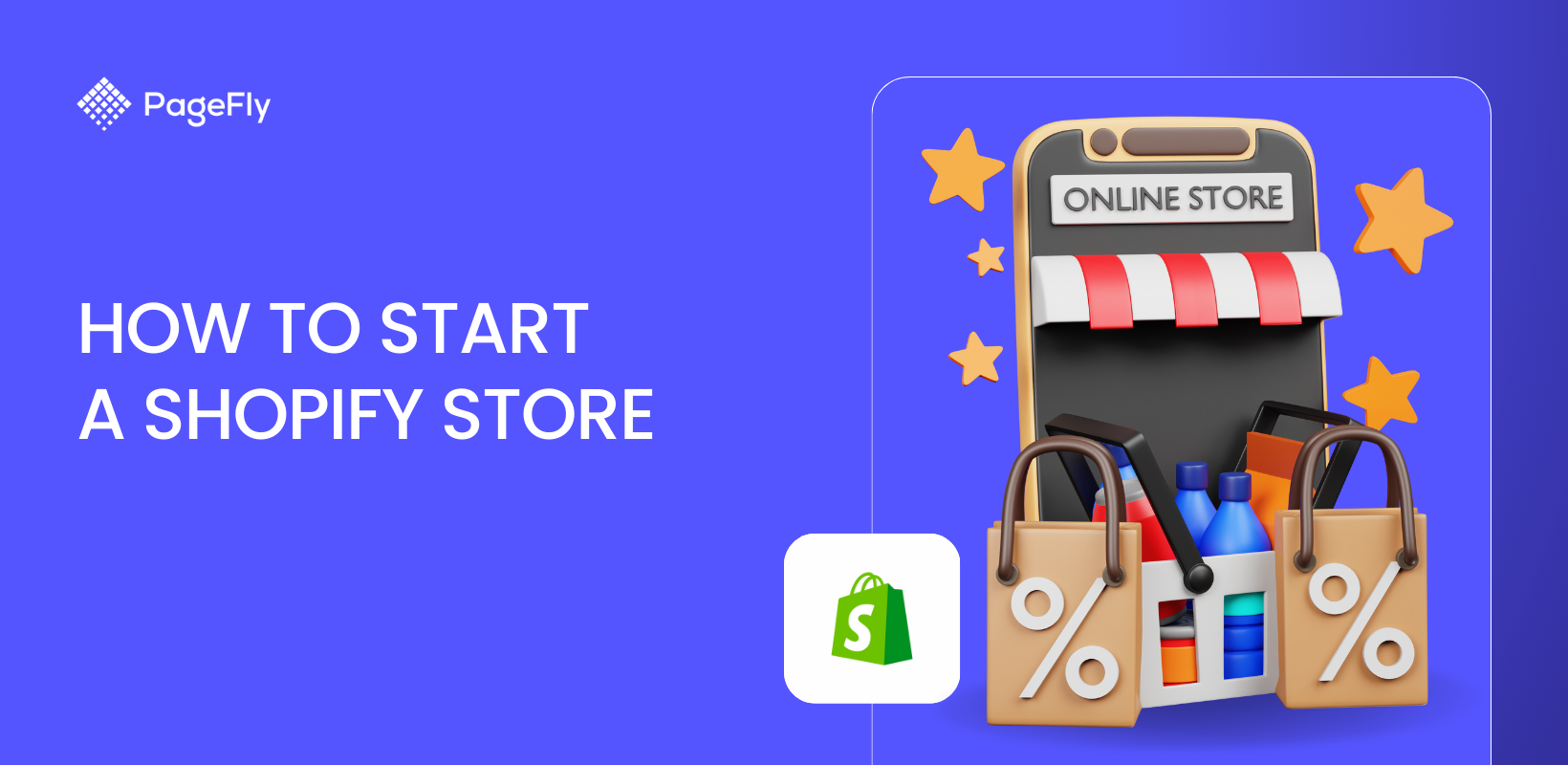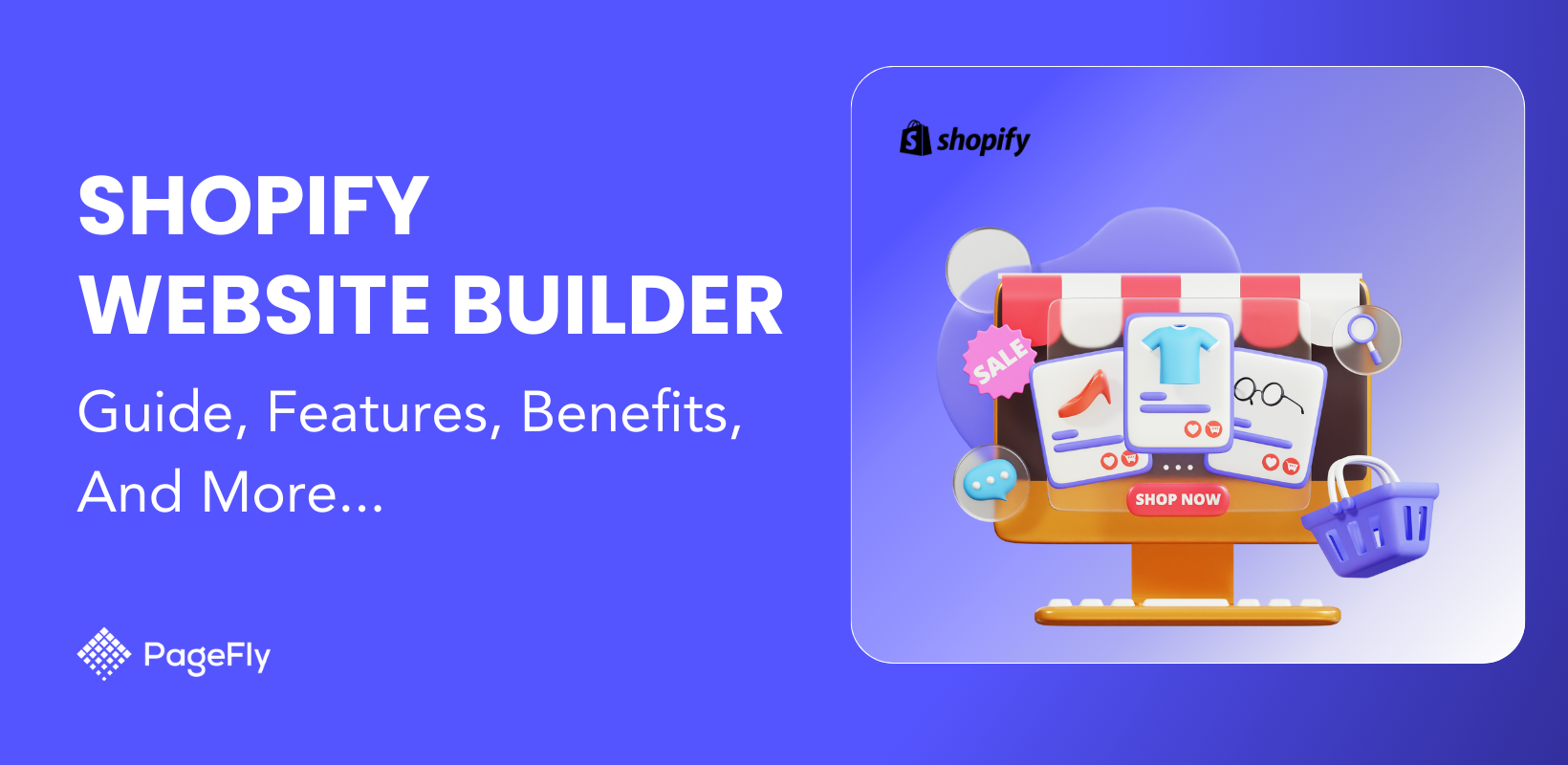In this brutally honest BigCommerce vs Shopify review, we will put these two giant ecommerce platforms against one another to see which is best for your online business from the beginning until it becomes a global brand.
To make this an objective comparison, we will be based on factual information. For that, we’ll focus on the common features of BigCommerce and Shopify to see which offers the better ecommerce platform to facilitate your online store.
By the end of this article, you’ll have a renewed understanding of the significance of choosing the right platform for your online business from the beginning.
So if you’re keen to know which is the more robust and holistic platform between the two, stick till the end.
Shopify Vs BigCommerce: Introduction
When it comes to choosing an e-commerce platform, both Shopify and BigCommerce are popular options on the market.
Both platforms offer robust features that cater to businesses of all sizes, but they also have distinct differences that might make one a better fit for your specific needs.
Let’s introduce this day’s competitors.
Shopify
Shopify is a global standalone ecommerce platform known for facilitating businesses of all sizes. This platform has become popular for its ease of use and comprehensive set of tools tailored for online store management.
Moreover, due to its user-friendly interface, extensive app ecosystem, and customizable themes, Shopify has become a go-to choice for businesses ranging from startups to large enterprises.
Its ability to scale with businesses as they grow is one of the key reasons why Shopify has become a trusted name in the ecommerce industry.

Source: Store Leads
Today, Shopify is home to almost 2.4 million active online brands all over the world.
The platform has gained traction from the increasing number of other platforms like BigCommerce, WoCommerce as well as Magento to Shopify migration cases, as businesses look for a more scalable and user-friendly platform.”
(Source: storeleads.app)
BigCommerce
BigCommerce is yet another powerful standalone ecommerce platform that closely competes with Shopify in terms of features. If Shopify is a modular ecommerce platform (where you only install what you need), BigCommerce is particularly known for its advanced in-built feature.
This makes it an attractive and inexpensive solution for merchants who are looking for an all-in-one platform. Because of the above-mentioned, BigCommerce has become a worthy opponent to the popular online store builder named Shopify.

Source: Store Leads
Despite its offerings, BigCommerce only has more than 43,000 active online stores as of this writing. (Source: storeleads.app).
How Do We Choose The Winner Between Big Commerce Vs Shopify
If this Big Commerce vs Shopify comparison were solely based on user base and popularity, Shopify would have been the clear winner. However, we don’t test ecommerce platforms based on popularity alone.
That’s why in this review, we will pick their common features and compare them head to head. After each comparison, we will score the platforms as follows:
- Winner - 2 points
- Loser- 1 point
- Tie - 1 point for each
By the end of BigCommerce vs Shopify batter, we will tally all the scores and we’ll know the winner.
Sounds great? Let’s get started.
BigCommerce Vs Shopify: Let The Battle Begin
How does BigCommerce compare with Shopify in terms of features? Will the competition be close, or will one of them have a big lead?
Let’s find out below.
Pricing
The primary consideration in this Shopify vs BigCommerce comparison is the pricing. And here’s the thing, both Shopify and BigCommerce offer flexible pricing for different subscription levels. Shopify and BigCommerce’s pricing structures are almost identical.
Shopify
Shopify offers four pricing plans for merchants of all sizes.

Shopify’s monthly subscription is as follows:
- Basic Shopify - $39 per month
- Shopify - $105 per month
- Advanced Shopify - $399 per month
- Shopify Plus - starts at $2300 per month (available only on yearly term)
Moreover, Shopify slashes 25% off from its subscription price if you choose a yearly plan.

- Basic Shopify - equivalent to $29 per month
- Shopify - equivalent to$79 per month
- Advanced Shopify - equivalent to $299 per month
- Shopify Plus - still at $2300 per month (available only on yearly term)
BigCommerce
Interestingly, if you opt for a BigCommerce store, you’ll have the same pricing structure as Shopify.

BigCommerce’s monthly pricing plan is as follows:
- Standard - $39 per month
- Plus - $105 per month
- Pro - $399 per month
- Enterprise - custom pricing
But if you opt for a yearly payment plan, you’ll also get a 25% discount on its plans.

BigCommerce yearly plan:
- Standard - equivalent to $29 per month
- Plus - equivalent to $79 per month
- Pro - equivalent to $299 per month
- Enterprise - equivalent to custom pricing
Winner: Tie
BigCommerce: 1 | Shopify: 1
Although their plans are named differently, we can infer that BigCommerce Standard competes with Shopify Basic. The Plus competes with Shopify, Pro with Advanced Shopify, and Custom against Shopify Plus. Considering all these, it’s a tie.
Themes
The theme that you’re using will dictate how your online store will look and feel. Thus, it is important to choose the right theme that suits your store’s branding.
Shopify
Shopify offers a rich collection of themes to its users. There are a total of 215 Shopify themes as of today and the list is still growing.

The good thing about the Shopify theme store is that it offers themes for all budget sizes. Thus, if you’re a new merchant who’s testing out Shopify, you can choose one from its 13 free themes that are all well-made. But if you want a theme with richer features, you can choose from more than 200 paid themes that range from $140 to $450.
BigCommerce
There is also a huge collection of BigCommerce themes.

With a total of 154 free and paid themes in the BigCommerce theme store, merchants won’t run out of choices. BigCommerce’s theme collection consists of templates for all kinds of online businesses. And if you’re not ready to pay for a theme yet, you can choose from 12 free themes that are equally well made.
Winner: Shopify
BigCommerce: 1 | Shopify: 2
Shopify offers more free and paid themes. Thus giving merchants more options as to how their store would look and feel.
Apps & Integrations
Apps and plugins are software that add more functionalities that are not present on the online store out of the box.
Shopify
The Shopify app store has a vast collection of apps amounting to more than 12,000 solutions for all types of uses. (Source: storeleads.app).

Shopify offers a wide range of apps from simple trust badges, and chatbots, all the way to ERP integrations. Thus, whether you’re a startup or a seasoned online entrepreneur, the Shopify app store has the solution for you.
BigCommerce
The BigCommerce store offers a multitude of apps as well. However, it isn’t as vast as Shopify’s.

Having only 1000 apps as of this writing, the BigCommerce app store doesn’t come close to Shopify’s. Be that as it may, it still offers some crucial apps such as payment gateways, ERP integration, social integrations, and more.
Winner: Shopify
BigCommerce: 1 | Shopify: 2
Strictly talking about numbers, Shopify wins the app store comparison by a mile. Having 12000+ apps compared to BigCommerce’s 1000 solutions.
SEO Capabilities
As both BigCommerce and Shopify are ecommerce platforms, you can’t expect both platforms to have as much SEO flexibility as WordPress websites. However, that does not mean that you cannot perform search engine optimization on them.
Shopify
Shopify offers basic SEO customization features on its pages. However, where Shopify falls short is in terms of page URL.

Each page you publish displays the entire path (much like a breadcrumb) to the page – making the URLs longer.
BigCommerce
On the other hand, BigCommerce offers basic SEO capabilities for ecommerce stores as well. However, it gives merchants more choices in regard to how their URLs appear.

BigCommerce allows merchants to choose whether to display the entire path of webpages or to use a truncated URL.
Winner: BigCommerce
Bigcommerce: 2 | Shopify: 1
According to Google’s John Mueller, URLs are not a direct ranking signal. As such, having a longer or truncated URL does not guarantee search ranking. He also continued by saying that the number of slashes in your URL will not affect search ranking.
Be that as it may, having the option to truncate your URLs has a lot of benefits in terms of fixing your website’s page structure. As such, BigCommerce wins this one.
Marketing
Every ecommerce store should have a robust set of marketing tools. Otherwise, how will you sell your products?
Luckily, both BigCommerce and Shopify have a complete suite of tools to aid in marketing.
Shopify
Shopify offers a comprehensive suite of marketing tools such as analytics and automations to enhance the way you see your marketing efforts.

With marketing insights, you are presented with reports to measure and track the efficacy of your efforts. You can also set automation with various triggers (using Shopify Flow) to enhance your marketing strategy.
Additionally, Shopify is also integrated with more ecommerce platforms such as Amazon, eBay, Etsy, Walmart, and just recently, Target.
But what makes Shopify stand out is the Shop app.
With the Shopify Shop app, merchants get access to yet another sales channel that’s exclusive to Shopify store owners. The Shop app is like a multi-vendor marketplace where products from various merchants are listed. And because the Shop app is a native Shopify feature, customer data from Shopify stores are also accessible there – especially payment details. Thus making the shopping experience more frictionless.
BigCommerce
BigCommerce offers a suite of multichannel marketing tools that cover emails, social media integration using apps, and integration with other ecommerce platforms such as eBay.

Additionally, Bigcommerce also has abandoned cart recovery tools so you can persuade your customers to finish their purchases. Moreover, BigCommerce also offers marketing analytics similar to Shopify.
However, BigCommerce does not have a marketplace similar to the Shop app.
Winner: Shopify
BigCommerce: 1 | Shopify: 2
Shopify’s Shop app is a game changer in this BigCommerce vs Shopify comparison.
Shipping Coverage
Fortunately, both Shopify and BigCommerce offer a shipping network that could facilitate international sales.
Shopify
Shopify offers shipping solutions to merchants wherever they are in the world. Shopify even has a Shopify Shipping partner network to facilitate cheaper shipping rates for merchants located in the United States, Canada, Australia, United Kingdom, France, Italy, and Spain.
BigCommerce
On the other hand, BigCommerce is also partnered with major shipping brands like FedEx, UPS, and USPS. Thus, serving international customers is possible with BigCommerce.
Winner: Shopify
BigCommerce: 1 | Shopify:2
Although both platforms offer international shipping, Shopify’s partnership, through Shopify Shipping, with major shipping brands offers significant savings to merchants. The savings could be up to 88%. Moreover, Shopify Shipping protects the customers by embedding insurance on each shipment (terms and conditions apply).
Payment Gateway
Having the right payment methods in your ecommerce store could facilitate more sales. And thus, more profits to your business.
Shopify
Shopify has its proprietary payment gateway called Shopify Payments. Shopify Payments accepts cards from all major providers. Additionally, it also processes payments from popular digital payment wallets such as Apple Pay, Google Pay, Amazon Pay, and PayPal.
When using Shopify Payments, merchants are not charged any third-party transaction fees from the payments that they receive. Unfortunately, it is only available for merchants in the United States.
BigCommerce
BigCommerce does not have a proprietary payment method like Shopify Payments. However, it offers the same benefits to merchants in that they don’t have to pay transaction fees for major payment providers.
Winner: Tie
BigCommerce: 1| Shopify:1
Because both Shopify and BigCommerce do not charge transaction fees for major payment providers in the United States, this comparison will be a tie.
Transaction Fees
A transaction fee is charged by platforms whenever your store successfully makes a sale.
Shopify
Shopify charges a small percentage transaction fee depending on your Shopify plan:
- Basic Shopify - 2%
- Shopify - 1%
- Advanced Shopify - 0.6%
- Shopify Plus - 0.2%
These transaction fees are charged regardless of the payment method that you’re using and your location.
BigCommerce
On the other hand, BigCommerce does not charge any transaction fee on every sale that you make from your website. As such, you get to keep all your profits to yourself.
Winner: BigCommerce
BigCommerce: 2 | Shopify: 1
Although Shopify only charges a small amount of transaction fee on every sale, BigCommerce emerges as the better one in this BigCommerce vs Shopify comparison because it does not charge any fee at all.
Support
Support does not only pertain to how the platforms handle customer concerns. In the world of ecommerce, support also means having access to community forums, dedicated subject matter experts, and access to materials that aid in your entire journey.
Both Shopify and BigCommerce offer 24/7 to all their merchants. They are reachable via email and live chat.
But what differentiates them is the number of professionals and agencies dedicated to them.
Shopify

Shopify has an extensive partner directory of more than 2900 experts offering various services ranging from copywriting, to store development, and even custom app development. Shopify experts also vary in prices. Prices can be as low as $20 per hour to $100 per hour or more.
BigCommerce

Similar to Shopify, BigCommerce offers a huge partner directory where merchants can hire BigCommerce experts to conduct professional services for their online businesses. With more than 1200 BigCommerce experts, merchants are guaranteed that there’s always an agency to help them.
Winner: Shopify
BigCommerce: 1 | Shopify: 2
Although both platforms offer a partner directory with a huge selection of experts, Shopify wins this one because of the sheer number of agencies committed to it. With 2800+ experts, Shopify’s is more than double that of BigCommerce 1200+.
Scalability
Both ecommerce platforms could facilitate growing online brands, not just locally, but internationally. With either Shopify or BigCommerce, you can create headless online storefronts for more flexibility.
As such, there is no doubt that you won’t go wrong with either brand when looking for a solution to a growing business.
However, where they highly differ is in terms of in-store and online store integration.
Shopify

Shopify has its proprietary software and hardware for integrating in-store and online sales. This is called Shopify POS.
Shopify POS is a holistic inventory management system that synchronizes your in-store inventory with your inventory from other storage locations.
You can also use Shopify POS to transfer products from one storage location to another. Additionally, it can be used to forward online orders to your physical stores so they act as pickup locations for customers who prefer in-store pickups.
BigCommerce
On the other hand, BigCommerce offers POS as well. However, it doesn’t have a proprietary system that centralizes your inventory management.

Instead, if you plan to manage both an online store and a physical store, you will have to rely on third-party solutions found on the BigCommerce app store.
Winner: Shopify
BigCommerce: 1 | Shopify: 2
Shopify POS is unmatched in the ecommerce industry. In fact, amongst all ecommerce website builders in the market, Shopify is the only one that offers a proprietary system like this.
User Reviews
Lastly, when choosing an ecommerce platform, you’ll have to know how current and previous users feel about them. As such, it is important to read reviews before committing to one.
And when reading reviews, you’ll have to rely on credible sources such as G2.
Use G2 reviews
Shopify
Shopify gets a 4.4 out 5 rating from 4500+ user reviews on G2.

Breaking these reviews even further, let’s take a look at the pros and cons of Shopify as described by the users.

The top-ranking advantage of Shopify is its ease of use. It is then followed by its services, easy integration, facilitation of online sales, and quick setup.
On the other hand, the customers who aren’t very happy with the platform say that the disadvantage of Shopify is mainly the cost entailed in using it. It is followed by its limitations on customization and features. Some have experienced poor support.
BigCommerce
On the other hand, BigCommerce gets 4.2 out of 5 stars from only 500+ reviews on G2.

Let’s take a look at how those 500+ reviews describe their BigCommerce experience.

Similar to Shopify, the main advantage of BigCommerce is its ease of use. Followed by its customer support and integration.
At the same time, a number of those who have experienced poor support described it as their number one issue with the platform. This disadvantage is then followed by the cost entailed in using it, its limitation in customization, and some missing features.
Winner: Shopify
BigCommerce: 1 | Shopify: 2
Negative reviews are normal in any solution in the market as they help set the right expectations. The reason why Shopify won this comparison is because proportional to the number of users, Shopify gets significantly better reviews from actual users.
Who Wins, Shopify Or BigCommerce?
After having read the comparison above, which one should you use, will it be Shopify or BigCommerce? Take a look at the table below to see how the two performed.
Criteria | BigCommerce | Shopify |
Pricing | 1 | 1 |
Themes | 1 | 2 |
Apps & Integrations | 1 | 2 |
SEO Capabilities | 2 | 1 |
Marketing | 1 | 2 |
Shipping Coverage | 1 | 2 |
Payment Gateway | 1 | 1 |
Transaction Fees | 2 | 1 |
Support | 1 | 2 |
Scalability | 1 | 2 |
User Reviews | 1 | 2 |
Total | 13 | 18 |
After our careful review, we have arrived at a 13-18 score in favor of Shopify.
Therefore, this does not mean that BigCommerce is not a good platform. We think that BigCommerce is a potent ecommerce platform for those who are looking for an alternative to Shopify.
Among Shopify competitors, BigCommerce has strong characteristics, particularly in the SEO division. We also like that the platform does not charge any transaction fee – which is a big deal and could amount to substantial net profits to merchants.
However, in the majority of the comparisons, Shopify wins. And where we think Shopify shines is in terms of scalability. Shopify developed its hardware and software system to integrate online and in-store sales to make merchandising easier.
Conclusion
Both Shopify and BigCommerce did well in this comparison. But now that Shopify won this comparison, does it mean that BigCommerce should be ignored entirely?
We don’t think so. Although it falls short against Shopify, it does not mean that BigCommerce is underwhelmingly incapable. Quite the contrary – BigCommerce is a capable platform.
With that in mind, it makes us seriously wonder why BigCommerce’s user base growth (as mentioned in the intro) seems to have stagnated in the past five years.
On the other hand, Shopify’s user base has been steadily growing in the past five years – which says a lot about its established credibility in the industry.
Bigcommerce Vs Shopify FAQ
In this in-depth review, Shopify emerges as the better ecommerce platform compared to BigCommerce. Specifically, Shopify proved to be better in terms of:
- Theme selection
- Initial pricing
- Marketing
- Support
- Scalability
BigCommerce is a very capable ecommerce platform. However, it falls short in terms of scalability—particularly regarding integrating online and in-store sales and inventory management.
While Shopify has its proprietary hardware and software for scaling businesses, BigCommerce merchants will have to rely on third-party apps for integration.
BigCommerce is a great choice for small businesses because it comes with a multitude of built-in features that can help in running an online store. Having more in-built features also means less recurring expenses on apps.
Additionally, what makes BigCommerce a great choice for small businesses is that it does not charge any transaction fee. As such, BigCommerce does not take a cut whenever





![BigCommerce Vs Shopify : In-Depth & HONEST Review [2025]](http://pagefly.io/cdn/shop/articles/bigcommerce_vs_shopify.png?v=1742983022&width=1640)






![27 Best Shopify General Stores + Complete Strategy Guide [2025]](http://pagefly.io/cdn/shop/articles/Best_Shopify_General_Stores_2f9d09f2-7c38-4da9-a495-e9f4898ddd68.jpg?v=1757271936&width=1640)





